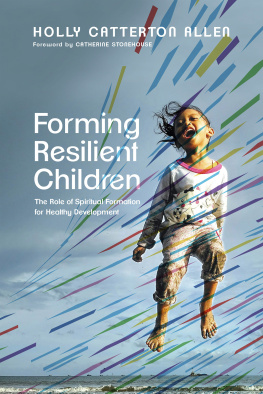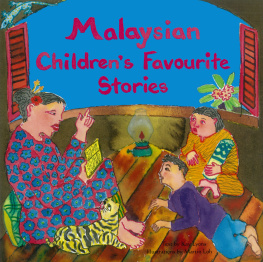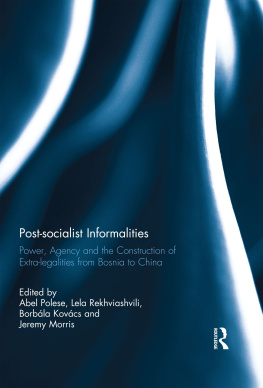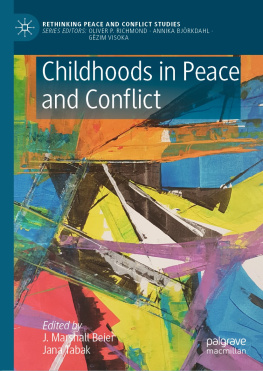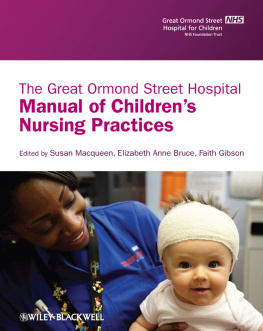

First published in Great Britain in 2016 by
Policy Press University of Bristol 1-9 Old Park Hill Bristol BS2 8BB UK Tel +44 (0)117 954 5940 e-mail
North American office: Policy Press c/o The University of Chicago Press 1427 East 60th Street Chicago, IL 60637, USA t: +1 773 702 7700 f: +1 773-702-9756
Policy Press 2016
British Library Cataloguing in Publication Data
A catalogue record for this book is available from the British Library
Library of Congress Cataloging-in-Publication Data
A catalog record for this book has been requested
ISBN 978-1-4473-2274-0 Hardcover
ISBN 978-1-4473-3462-0 ePub
ISBN 978-1-4473-3463-7 Mobi
The right of Matej Blazek to be identified as author of this work has been asserted by him in accordance with the Copyright, Designs and Patents Act 1988.
All rights reserved: no part of this publication may be reproduced, stored in a retrieval system, or transmitted in any form or by any means, electronic, mechanical, photocopying, recording, or otherwise without the prior permission of Policy Press.
The statements and opinions contained within this publication are solely those of the author and not of the University of Bristol or Policy Press. The University of Bristol and Policy Press disclaim responsibility for any injury to persons or property resulting from any material published in this publication.
Policy Press works to counter discrimination on grounds of gender, race,
disability, age and sexuality.
Cover design by Policy Press
Front cover image: Matej Blazek
Readers Guide
This book has been optimised for PDA.
Tables may have been presented to accommodate this devices limitations.
Image presentation is limited by this devices limitations.
Dedicated to the memory of
my grandfathers
(and their role in shaping
my childhood)
Contents
Matej Blazek is Lecturer in Human Geography at Loughborough University, UK. He is a social geographer with a particular interest in the geography of marginalisation, childhood, migration and emotions. He is also active in community youth work as a practitioner and trainer.
This book has developed from a doctoral project undertaken at the University of Dundee (2008-2011) and later during my work as a lecturer at Loughborough University (201215). The seven-year span means that the number of people who impacted on the project and who supported me is far too great to name them individually but I am certain that they will find their imprints in the book and accept my gratitude. Still, some I want to thank more clearly.
First, I am greatly indebted to my supervisors, who were extremely supportive throughout my time as a PhD student. Fiona Smith showed amazing patience and care for my work and her encouragement and insights were crucial for me to persevere through my fieldwork challenges. Chris Philos knowledge and encouraging attitude helped me to feel comfortable with my own work at the early stage of the project. Later, Donna Marie Brown was always generous in giving her time and providing me with quick, rigorous and encouraging feedback throughout the process of writing.
Second, I greatly enjoyed the hospitality and cosy atmosphere of Geography at the University of Dundee. For more than three years it has been a great place to do PhD and to develop academically as well as personally. Special thanks to Morgan Windram-Geddes for sharing a passion for the geographies of childhood.
Third, I was lucky to get on with my academic career at Loughborough University. A hub of work on children, youth and families, the Geography Department there made finishing this book possible. Of all colleagues, I am especially thankful to Darren Smith for guiding me through the first few years.
Fourth, I owe too much my closest ones and little would have happened without them.
Fifth, and most importantly, my greatest thanks should go to those who hosted my research and made it possible. The time I spent with children and young people in Kopany was a life-time experience and I can only hope that this book will do them and their lives a justice. The support I received from the Community Centre exceeded all my expectations and several of the staff I have to thank for so much more than their collegiality. The biggest thanks go to Petra Hricov, who stood behind the project in a way I would not have imagined.
I also wish to extend my thanks to Policy Press, in particular Isobel Bainton and Rebecca Tomlinson for their editorial support and patience. Finally, the project would not have been possible without support from the Economic Social and Research Council (ESRC), the Royal Geographical Society with the Institute of British Geographers (RGS-IBG), the Dudley Stamp Memorial Fund of the Royal Society and the Institute of Geography of the Slovak Academic of Sciences.
This book asks four questions: What do children do? Where do their actions come from? What can they do? And what does this imply for adults? It explores everyday practices of children (aged 514) from Kopany, at the time of the fieldwork a deprived and isolated neighbourhood on the outskirts of the Slovak capital Bratislava, where I spent one year in a dual role of ethnographer and youth worker. By investigating the circumstances in which these practices are embedded and from which they emerge, the book builds an account of the formation of childrens agency and of this agency as constituting the place where children live.
The question of childrens agency has come under the spotlight in a range of recent debates, including the scholarly interest in childrens capacities to act and make a difference (Oswell, 2013, p.6), the policy-driven focus on childrens wellbeing (van Nijnatten, 2013), or on children as social agents with distinctive rights in the context of global development (Lieten, 2008). I seek to address some gaps in these debates and contribute to the existing understandings of childrens agency in three ways. The main contribution comes from the material on which the book is based. This is first and foremost an ethnographic story of childrens practices, a thick empirical account generated in the role of a youth worker in Kopany. The book employs a strongly empiricist approach to theorising childrens agency; the theory is grounded in, and built from, the field experience. I offer a justification for this approach in three chapters of Part Two on the grounds of the links between the social and spatial positionality of the children in Kopany and the marginalisation they experience. But the ethnography is also a reflexive account of my encounters with children and adults (neighbourhood residents, youth workers and others) in the neighbourhood. Adultschildren is thus only one axis of difference reflected in this book. Another one is established between my roles as a researcher and a youth worker, and I unpick how different preconceptions of who we make ourselves as adults are important for how we can engage with children. I refer to my stay in Kopany by various terms in the book as research, project, practice or fieldwork underlining the complex and yet heterogeneous nature of the work.
The researcher practitioner couplet also opens up space for problematising two especially important facets of childrens agency ideas of childrens participation and of politics. In the first venture, the book exceeds the framework of childrens participation (Percy-Smith and Thomas, 2010) by disrupting adult-centred geometries of what participation means. Rather than exploring childrens involvement in adult-driven agendas, regardless of how well intended, the book positions children themselves at the heart of processes that shape communities. What if we ask about adults rather than childrens participation? As an answer I offer an expansion of theories of (childrens) agency into a theory of action a relational account of adults capacity to acquiesce in the fact that children are able to make a difference in the world and to conceive of a way to act upon it. Additionally, unlike a range of recent authors who theorise childrens agency in terms of political agency (Kallio, 2008; Kallio and Hkli, 2011; Mitchell and Elwood, 2012), I am cautious of scrutinising children as political actors, given the adult-based definitions of politics, whether as referring to institutional participation, civic actions or ongoing practices in everyday environments. Instead, I seek to reconsider adults themselves as political agents, building on an empirically grounded account of childrens practices, and making the aforementioned theory of action explicitly a theory of political action.


